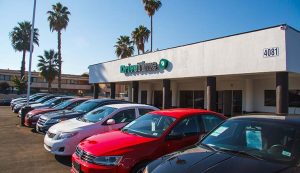
A medical or health professional who focuses on hearing healthcare and the treatment of hearing loss is known as a professional audiologist. They offer patients with hearing problems counseling, advice on how to manage their losses, and a diagnosis of hearing loss. They are involved in the prevention of hearing problems caused by noise exposure, aging, congenital defects, or other factors as well as in the design and distribution of hearing aids and other assistive technologies for people who have lost their hearing.
Audiologists measure the degree of hearing misfortune, decide a patient’s requirement for intensification gadgets, and give guiding and guidance on the most proficient method to utilize the gadgets. They might also offer specialized services like classroom or home amplification. In addition, it is the job of an audiologist to set up a variety of hearing tests for the patient, look at the results, and make sense of them.

Some expert audiologists work inside emergency clinics or facilities, giving master guidance to the two specialists and patients. Others investigate hearing loss’s causes and treatments simultaneously. They might collaborate with doctors to assist in the diagnosis and treatment of hearing-related conditions.
There are likewise clinical audiologists who work in particular hearing medical care facilities and inside local area based hearing communities. They can examine an individual’s hearing misfortune and propose arrangements like portable hearing assistants, implantable hearing gadgets, preparing programs, and other assistive innovations. They can also assess the patient’s communication skills and determine whether any lifestyle changes are necessary to ease the patient’s life with Metro Hearing loss.
A professional audiologist may also be involved in the preservation of hearing and the prevention of hearing loss for both the general public and specific groups, in addition to providing services to people who have lost their hearing. They might also provide instruction on how to use hearing protection in noisy environments and develop educational services for high-risk groups like farmers, teachers, and people who work at rodeos.








